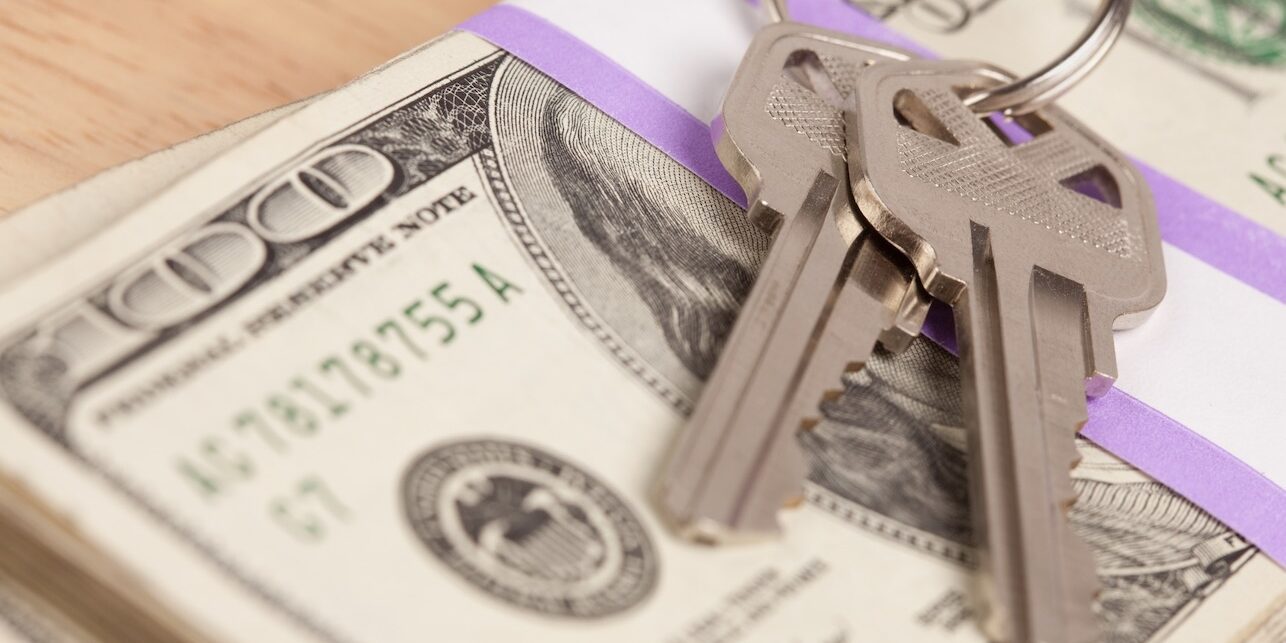A pledge or deposit to the seller represents the buyer’s good faith to purchase.
Earnest Money–what is it?
When a buyer pays a seller to show their intention and good faith to complete the transaction to purchase a home, this is called a pledge or earnest money.
The amount is usually between one to two percent of a fixed sale price.
Earnest money confirms a contract, and after the earnest money is paid, both parties are expected to keep the agreement.
Earnest money is a good faith deposit and is used to give the buyer more time to obtain financing to cover the total price of a property. Unlike a simple deposit, the buyer does not exclusively hold the earnest money. Still, it is also placed in both sides’ escrow trust or trust account.
Understanding Earnest Money
For buyers, earnest money proves to sellers that they are serious about a specific transaction. It incentivizes the seller to wait until the buyer can find the funding necessary to cover the total asking price.
Suppose, through no fault of the seller, the transaction is canceled. In that case, the earnest money can be either refundable or non-refundable.
How It Works
Earnest money is only sometimes paid directly to the seller. Issues are avoided by creating an escrow account with a third-party broker. This helps ensure proper money distribution at the end of the transaction.
When the seller accepts the offer, the buyer must sign a “purchase agreement.” This is a legally binding agreement by both parties for the purchase or sale of the home.
When the buyer signs the contract, an earnest money deposit is made to the escrow account held by the realtor. The money is paid to the seller as part of the purchase agreement when the purchase and sales conditions are met.
However, suppose the seller decides not to proceed with the transaction. In that case, as noted in the contract, the money is returned.
There are a few things can go wrong before the deal is closed. For example, the Home inspection can detect defects that violate the agreement. Or a substantially lower appraisal than anticipated. If this happens, the buyer could be able to recover all or part of their money.
Earnest Money Deposit (EMD)
In many cases, the buyer can expect the earnest money deposit amount to be at least one percent of the purchase price. However, sometimes the rates reach two to three percent. This depends on your credit score, mortgage rates, and whether you can put down a larger down payment. Also, whether you will be obtaining a conventional loan, or a va loan.
Factors affecting the amount of the EMD:
- Sometimes homes sell quickly, so a seller could require a higher EMD. The state of the real estate market dictates this.
- The overall values of the property.
- The bidder who offers the largest amount of earnest money may win the bid if there are many buyers.
An earnest money deposit is a promise by the buyer to the seller of the property, as a down payment and is a promise to the lender. For the down payment, usually the buyer will put down 20 percent for the lender to approve the home loan. The remaining amount is generally financed by a bank with monthly mortgage payments.
Summary
- Earnest money is a deposit to the seller representing the buyer’s good faith to buy a home.
- Factors affecting the amount of earnest money deposit (EMD) include the current state of the real estate market, housing market, the overall price, and the high demand for real estate properties.
- The EMD amount will be at least one percent of the purchase price, although, in some cases, the rates may reach two to three percent.
Katie McNeill and team have a team approach designed to use our combined knowledge, experience and skills to provide the expertise and service our customers and clients deserve.
Our team looks forward to helping you. Call us: 440-796-5506 or use our Contact Us form if you’re interested in buying a home. Use our free Home Appraisal tool if you’re considering selling your home!
Our goal is to ensure a smooth real estate process for our customers and clients in the purchase or sale of real estate. We accept all challenging and difficult situations related to real estate transactions as opportunities to use our professional skills. We find solutions that best achieve the real estate needs of our customers and clients so that everyone enjoys a happy ending!







